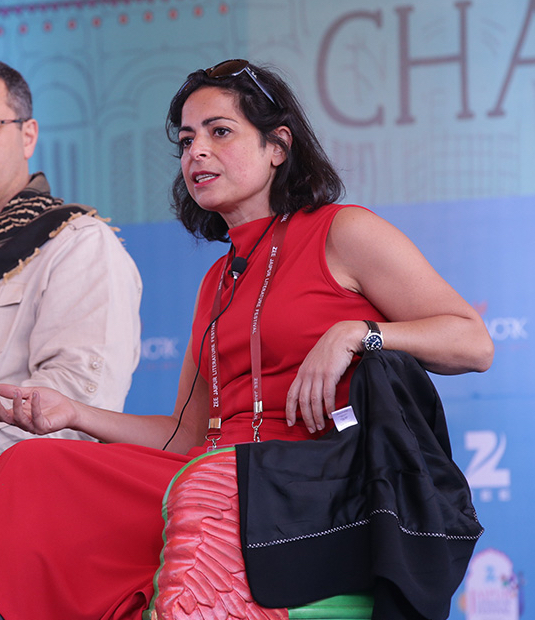
- 21 May 2019
[Arabia Asia] Spectres of Colonial Pasts Haunting Logistical Landscapes
(This event was organised by MEI’s Arabia Asia Research Cluster, as part of its quarterly public talks series.)
Abstract
Today, there is intense scholarly and artistic interest in logistical landscapes: Vast ports, busy straits, balletic cranes moving endless shipping containers stacked colourfully and symmetrically on vast docks. They all invoke something new, something extraordinary. It is often said that we live in the age of logistics and that this is transforming the character of capitalism and of the global political economy.
In this talk, drawing on the histories of port cities and trade in the Arabian Peninsula, foremost among them Aden and Dubai, Dr Khalili argued that our logistical present, though appearing as something utterly new, is in fact haunted by colonial pasts. She reflected on how the colonial spectre appeared to shape the making of maritime infrastructures, their emergence and decline, and their place in the world. She focused on the Arabian Peninsula, which had often acted as the hinge between Europe and Asia, and whose largest port, Jebel Ali in Dubai, is the only port on the Top 10 list of world ports not located in East or South-east Asia. This, in some ways, echoed the importance of the region in the colonial era, when the port of Aden was the most significant British way-station, fuelling, and transit port in the western Indian Ocean.
Although today’s mega ships, supply chain logistics, and the technologies that animate them seem like a far cry from the days of colonial control, much about that past still shapes, constrains, and influences today’s logistics. Whether it is route-making and enduring trans-oceanic connections of labour and trade and war, or the geography of ports and inland transportation crossroads and hubs, today’s transportation sector in the Gulf and Aden echoes colonial pasts.
About the Speakers

Professor of Middle East Politics
Department of Politics and International Studies
SOAS
University of London
Laleh Khalili’s first book, Heroes and Martyrs of Palestine: The Politics of National Commemoration (Cambridge 2007) drew on ethnographic research in the Palestinian refugee camp of Burj al-Barajna in Lebanon and focussed on the particular genres of commemoration – from the heroic practices of the heady days of Third Worldism to the tragic discourses of an era in which NGOs are ascendant. She also edited Modern Arab Politics (Routledge 2008) and co-edited (with Jillian Schwedler) Policing and Prisons in the Middle East: Formations of Coercion (Hurst/OUP 2010). Her last book, Time in the Shadows: Confinement in Counterinsurgencies (Stanford 2013), drew on interviews with former detainees of Abu Ghraib, Guantanamo Bay, and various Israeli detention camps and prisons – and military officers, guards, and interrogators, as well as a large number of archival sources to show the continuities in practices of detention in liberal counterinsurgencies from the Boer War until today. Her Sinews of War and Trade -about the politics of maritime transportation in the Arabian Peninsula- will be published by Verso in Spring 2020.
Event Details
Block B, 29 Heng Mui Keng Terrace
Singapore 119620




